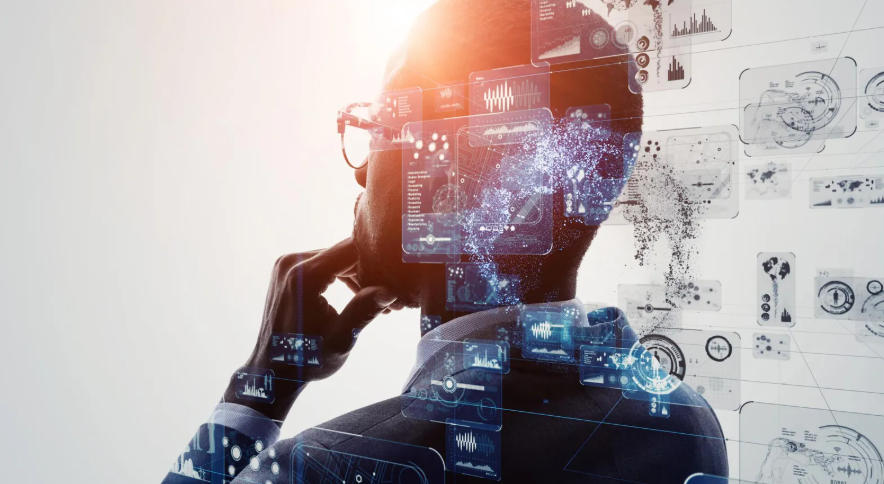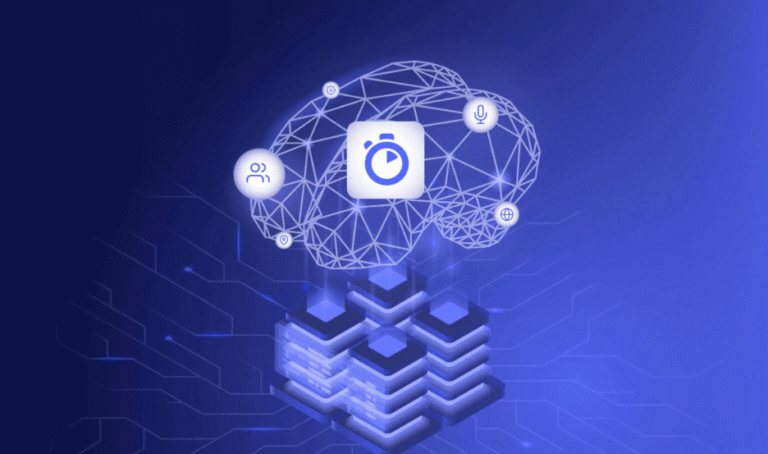Artificial Intelligence (AI) is no longer just a futuristic concept; it’s becoming an integral part of how we work and live. The advancement of AI technologies has begun to reshape industries, enhance productivity, and create new job roles. As AI continues to evolve, its influence on the workforce is expected to grow, presenting both opportunities and challenges. In this article, we will explore how AI is shaping the future of work, from the automation of repetitive tasks to the creation of entirely new career fields.
1. Introduction: Understanding AI’s Impact on Work
The integration of artificial intelligence into the workplace has been accelerating in recent years. AI systems are designed to mimic human intelligence, allowing them to learn, adapt, and perform tasks that were once exclusive to humans. From customer service chatbots to advanced machine learning algorithms, AI is becoming a ubiquitous tool in nearly every industry. However, its role in shaping the future of work extends far beyond just automation—it’s changing the very fabric of how businesses operate, how we communicate, and even how jobs are created.
2. The Rise of Automation in the Workplace
AI is primarily known for its role in automation, allowing repetitive and mundane tasks to be carried out more efficiently. Automation powered by AI is becoming common in industries ranging from manufacturing to healthcare.
See also: The Future of Technology: 10 Groundbreaking Trends to Watch in 2025
2.1. Automation in Manufacturing
Manufacturing processes have long relied on robots and machines, but AI is taking automation to the next level. AI-powered robots can perform tasks that require a higher level of precision, flexibility, and adaptability. Machine learning algorithms enable these robots to learn from their environment and optimize their actions, significantly increasing efficiency while reducing human error.
2.2. Automation in Service Industries
AI is also revolutionizing the service industry, with customer service chatbots and virtual assistants gaining popularity. AI algorithms are now capable of handling inquiries, processing requests, and even resolving issues without human intervention. This automation not only improves customer experience but also reduces operational costs for businesses.
3. AI-Driven Enhancements in Decision-Making
AI isn’t just about automating tasks; it’s also transforming how decisions are made in the workplace. With its ability to analyze vast amounts of data, AI is helping businesses make more informed, data-driven decisions.
3.1. Data Analysis and Predictive Analytics
AI excels at processing large datasets and identifying patterns that humans may overlook. By leveraging machine learning algorithms, businesses can predict trends, forecast demand, and make more strategic decisions. This predictive power is especially valuable in industries such as finance, retail, and marketing.
3.2. AI in Strategic Planning
AI can support executives in strategic planning by providing valuable insights into market trends, competitor analysis, and consumer behavior. With AI-powered tools, companies can align their goals more accurately with market needs, leading to a more successful business strategy.
4. AI and Job Transformation
The widespread adoption of AI raises important questions about its effect on the workforce. While AI is automating some tasks, it is also transforming existing roles and creating new career opportunities.
4.1. The Role of AI in Job Creation
Rather than eliminating jobs entirely, AI is creating new job roles that didn’t exist before. These new jobs are typically centered around managing, programming, and overseeing AI systems. Professionals in AI development, data science, and machine learning are in high demand as companies look to implement and optimize AI technologies.
4.2. Job Displacement: A Growing Concern
At the same time, AI has the potential to displace jobs that involve repetitive, manual, or low-skill work. Positions in areas such as data entry, telemarketing, and basic customer support are more vulnerable to automation. The displacement of workers could present challenges for certain industries, particularly in terms of retraining and reskilling.
5. The Role of AI in Employee Productivity
AI can enhance employee productivity by taking over tasks that would otherwise consume a significant portion of their time.
5.1. AI Tools for Streamlining Daily Tasks
AI tools can automate mundane tasks, such as scheduling meetings, answering emails, and managing to-do lists. This allows employees to focus on higher-level, strategic work that requires creativity and critical thinking. With AI doing the heavy lifting, workers can achieve more in less time.
5.2. Virtual Assistants in the Workplace
Virtual assistants like Siri, Google Assistant, and Alexa are becoming commonplace in the workplace. These AI-powered tools help employees stay organized, manage their calendars, and even assist with research and data analysis. By integrating virtual assistants into the workplace, businesses can improve efficiency and streamline workflows.
6. AI’s Influence on the Gig Economy
The gig economy, which consists of freelance and contract-based work, has been significantly influenced by AI.
6.1. Freelance Platforms and AI Integration
AI-powered platforms like Upwork, Fiverr, and Freelancer are revolutionizing how freelancers connect with clients. AI can match freelancers to jobs based on their skills and experience, ensuring a more efficient and personalized work experience. This enhances opportunities for freelancers, while also providing businesses with access to a global talent pool.
6.2. Flexible Work Arrangements Facilitated by AI
AI also makes it easier for workers to engage in flexible work arrangements, such as remote or part-time positions. With AI-powered tools for communication, project management, and collaboration, workers can effectively manage their tasks from any location, contributing to a more dynamic and diverse workforce.
7. Collaboration Between Humans and AI: A New Era of Teamwork
One of the most significant shifts that AI is bringing to the workforce is the change in how humans work alongside technology.
7.1. AI as a Co-Worker: Collaboration vs. Competition
Rather than viewing AI as a replacement for human workers, the future of work will likely be centered around collaboration between humans and AI. AI can handle data-heavy tasks and provide insights, while humans can focus on creative, strategic, and emotional aspects of work that machines cannot replicate.
7.2. Augmenting Human Abilities with AI
AI has the potential to augment human capabilities by providing real-time information, automating repetitive tasks, and offering insights that help humans make better decisions. In this sense, AI acts as a tool to enhance human productivity and effectiveness rather than replace it.
8. AI in Remote Work: Transforming the Virtual Workplace
The rise of remote work has been accelerated by AI, making it easier for businesses to manage a distributed workforce.
8.1. AI-Powered Communication Tools
AI-powered communication tools, such as Zoom’s AI-driven background noise cancellation or Microsoft Teams’ smart scheduling, are making remote work more effective. These tools allow teams to communicate seamlessly, regardless of geographical location, which is essential for maintaining productivity in a virtual environment.
8.2. Virtual Offices and AI Collaboration Software
AI collaboration software can simulate a physical office environment in the digital realm. Tools like virtual whiteboards, task managers, and document collaboration platforms are all powered by AI, enhancing teamwork and communication among remote workers.
9. Ethical Implications of AI in the Workplace
As AI continues to advance, it’s important to consider the ethical challenges it brings to the workplace.
9.1. Ensuring Fairness and Transparency in AI Applications
AI systems can sometimes reinforce biases if not properly designed. It’s crucial to ensure fairness and transparency in AI applications, especially in areas like hiring and promotions. Companies must implement safeguards to prevent discrimination and ensure that AI is used in an ethical manner.
9.2. The Future of Privacy and Data Security
As AI systems rely on vast amounts of data, privacy and data security are major concerns. Companies must invest in robust cybersecurity measures to protect sensitive information and ensure that AI technologies are used responsibly.
10. The Importance of Upskilling in the Age of AI
To keep pace with the evolving workforce, upskilling is crucial for workers who want to thrive in an AI-driven environment.
10.1. AI Literacy for the Modern Workforce
AI literacy is becoming increasingly important, and workers should familiarize themselves with basic AI concepts, tools, and technologies. By understanding how AI functions, employees can leverage it to their advantage in their daily work.
10.2. Training Programs for AI Integration
Companies are investing in AI training programs to help their employees adapt to new technologies. These programs are designed to equip workers with the skills necessary to work alongside AI and leverage its capabilities in their respective roles.
Conclusion
Artificial Intelligence is undeniably shaping the future of work, offering exciting opportunities for innovation, productivity, and efficiency. While there are concerns regarding job displacement and ethical implications, AI is also creating new roles, augmenting human abilities, and fostering collaboration. To remain competitive in the age of AI, both businesses and employees must embrace these changes and prepare for a future where humans and machines work side by side.
Frequently Asked Questions
1. Will AI replace all jobs?
No, AI is more likely to transform jobs rather than replace them. While some repetitive tasks may be automated, new job roles will emerge, especially in the fields of AI development, data science, and machine learning.
2. How is AI improving employee productivity?
AI enhances productivity by automating repetitive tasks, providing insights through data analysis, and offering tools like virtual assistants to streamline workflows.
3. What are the ethical concerns of AI in the workplace?
Ethical concerns include ensuring fairness in AI algorithms, preventing bias, and safeguarding data privacy.
4. How does AI impact the gig economy?
AI is transforming the gig economy by helping freelancers connect with clients more efficiently through AI-powered platforms and facilitating remote work with advanced communication tools.
5. How can employees prepare for an AI-driven future?
Employees can upskill by learning about AI technologies, enhancing their digital literacy, and taking training programs that focus on AI integration in their fields.
6. What industries will be most impacted by AI?
AI is making significant strides in industries like manufacturing, healthcare, finance, customer service, and education, automating tasks and improving decision-making processes.



